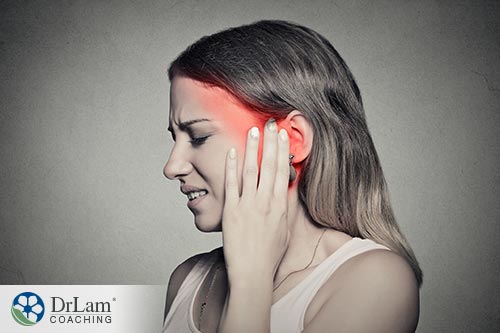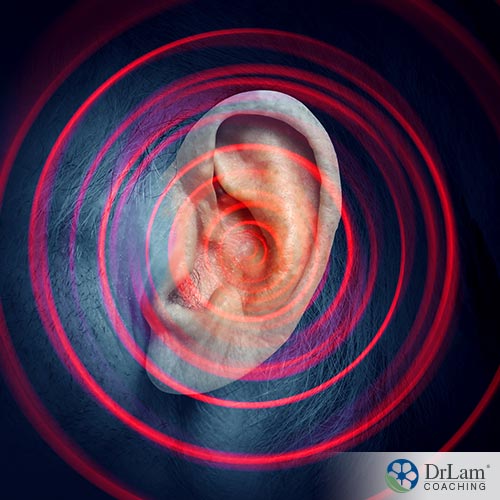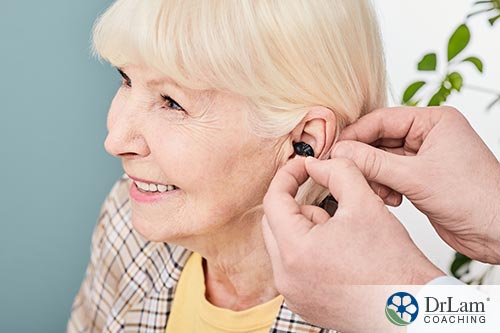
Do you hear ringing in the ears that other people can’t hear? This condition is known as tinnitus, and it’s more common than you might think. This annoying condition can occur as a result of other health conditions, from prior damage to hearing or the head and neck area, or without any apparent cause. It rarely indicates a serious health condition, but you should still get it checked by your doctor, just to be safe.
If you find the constant ringing in your ears annoying, there aren't many ways to stop it. But there are ways to make it less disruptive.
 Tinnitus is when you experience ringing in the ears that others can’t hear. It's estimated that 15 percent of people experience some form of tinnitus, and it is more common in older adults. In fact, most people will experience tinnitus at least once in their life. However, this will most often be short-lived and often because of exposure to very loud noises like a music concert.
Tinnitus is when you experience ringing in the ears that others can’t hear. It's estimated that 15 percent of people experience some form of tinnitus, and it is more common in older adults. In fact, most people will experience tinnitus at least once in their life. However, this will most often be short-lived and often because of exposure to very loud noises like a music concert.
Some people experience chronic tinnitus, when the symptoms last for longer than 6 months. The most common type of tinnitus is a continuous, high-pitched sound. It usually indicates that you have a problem with your auditory system and may need to have a hearing test.
Although tinnitus is usually referred to as ringing sounds, it can also cause other types of sounds in the ears including:
As you can tell, this is a highly subjective experience. The sounds can vary in volume from day to day and hour to hour and may occur in one or both ears. Sometimes, it can be so loud that it will interfere with your ability to hear outside noises, and sometimes it will be quiet and barely there. The sounds can also come and go, apparently at random.
Anyone can experience ringing in the ears, but there are factors that may increase your risk of developing tinnitus including:
You may also experience a rhythmic whooshing or pulsing sound in time with your heartbeat. This is a rare form of tinnitus known as pulsatile tinnitus, and it can actually be audible during a physical examination.
There are several health conditions that can cause tinnitus. However, it can also occur without any apparent cause, so don’t be surprised if your doctor can’t find any cause for the ringing in your ears.
Some of the most common causes are:
As you age, the tiny hairs in your inner ear that pick-up sound waves and transmit electrical signals to your brain start to break or bend. This occurs naturally with age, but it can affect how these hairs transmit electrical signals. Basically, these hairs can start to transmit random impulses, resulting in you hearing things that aren’t really there.
Head or neck injuries can affect the hearing nerves, the part of the brain that registers sound, or the inner ear, resulting in hearing issues. If you experience ringing in the ears because of this cause, you will probably only get it in one ear.
Anxiety or depression are both known to bring on or worsen tinnitus, so make sure you address them as soon as possible.
If you have an ear infection or a build-up of matter inside your ear canals it will change the pressure in your ears and can result in tinnitus.
Problems with your teeth or recent dental work can also bring on tinnitus. These types of problems are often easily fixed with a dental check-up or a mouth guard.
There are certain medications that can cause tinnitus including:
Often, if you develop tinnitus because of these medications, then lowering the dose will help. And when you stop taking the medication, the noise will stop too.
There are certain conditions that involve the ear that can bring on tinnitus such as:

There are also other health conditions that are associated with ringing in the ears such as:
You should always see your doctor when you experience a new or unusual symptom. However, some people don’t worry about the noise in the ears and others find it extremely annoying. How problematic you experience the noise to be will probably dictate how quickly you make a doctor’s appointment.
However, make sure you make an appointment to get the ringing in the ears checked soon if:
When you go to the doctor for tinnitus, your doctor will most likely:
 Often, we don’t think about our hearing until we develop problems like ringing in the ears or when our hearing starts to fail because of age. Yet hearing loss is one of the most common disabilities in the modern world.
Often, we don’t think about our hearing until we develop problems like ringing in the ears or when our hearing starts to fail because of age. Yet hearing loss is one of the most common disabilities in the modern world.
If you want to do what you can to protect the health of your ears and your hearing, then here are some steps you can take:
Unless you have a specific health condition that’s causing ringing in the ears, there’s not much that your doctor can relieve or eliminate this condition. However, there are things you can do to manage your tinnitus better, though you may need a combination of techniques to find what works for you.
Some strategies that might help include:
 Adrenal fatigue is an often under-recognized condition that is connected with chronic stress and can lead to tinnitus. Adrenal Fatigue Syndrome (AFS) occurs when ongoing stress causes the overuse of the NeuroEndoMetabolic (NEM) stress response. This stress response activates in stressful times and causes the release of cortisol, known as the stress hormone, from the adrenal glands.
Adrenal fatigue is an often under-recognized condition that is connected with chronic stress and can lead to tinnitus. Adrenal Fatigue Syndrome (AFS) occurs when ongoing stress causes the overuse of the NeuroEndoMetabolic (NEM) stress response. This stress response activates in stressful times and causes the release of cortisol, known as the stress hormone, from the adrenal glands.
The increased cortisol makes changes throughout the body that prepare you to respond to the cause of the stress. However, when stress becomes chronic, the NEM stress response becomes overworked. If this situation isn’t alleviated, the adrenal glands can become fatigued and start to break down. And the NEM stress response and all its circuits can then become unbalanced and start to malfunction, causing a debilitating combination of symptoms and health conditions.
Symptoms of tinnitus can occur or worsen because of imbalances and malfunctions in the Cardionomic Circuit, which includes the cardiovascular system (CVS), the adrenal glands, and the autonomic nervous system (ANS). As this circuit becomes unhealthy and dysfunctional, it can cause a range of symptoms and issues, including tinnitus. Here’s how the various parts of the Cardionomic Circuit can bring on this symptom:
The adrenal glands are usually the first organ to degrade in health with AFS. This is caused by overwork due to prolonged chronic stress. And stress is known for causing or bringing on tinnitus.
As AFS progresses, the sympathoadrenal system (SAS) of the ANS malfunctions. This causes an overload of norepinephrine and epinephrine. These are the hormones that can make you alert and active, but when their levels are abnormal, they can also cause anxiety, insomnia, and a rapid heart rate, all of which can bring on or exacerbate ringing in the ears.
Malfunctions in the CVS are a key cause of tinnitus. As the CVS becomes unhealthy in AFS, you may experience issues like postural hypotension, irregular or high heart rate, high blood pressure, and other problems associated with tinnitus.
These types of problems often worsen already existing problems with insomnia and anxiety, which will increase your chances of developing tinnitus even further. All of these issues can also cause more stress, which can worsen AFS and imbalances in the Cardionomic Circuit. And this in turn may worsen tinnitus.
Ringing in the ears can be very annoying, but it’s usually harmless and often is a natural part of aging. This doesn’t mean you should just ignore it though. As with any physical change, it’s important that you visit your doctor to get this symptom checked and to rule out any potentially dangerous conditions.
Here’s what you should do if you suddenly develop tinnitus that just won’t go away:

Ringing in the ears is a very common and annoying complaint. It can be caused by a range of issues from age-related hearing loss to tumors, but most of the time, there’s no apparent cause, and you will have to learn to ways manage the condition instead.